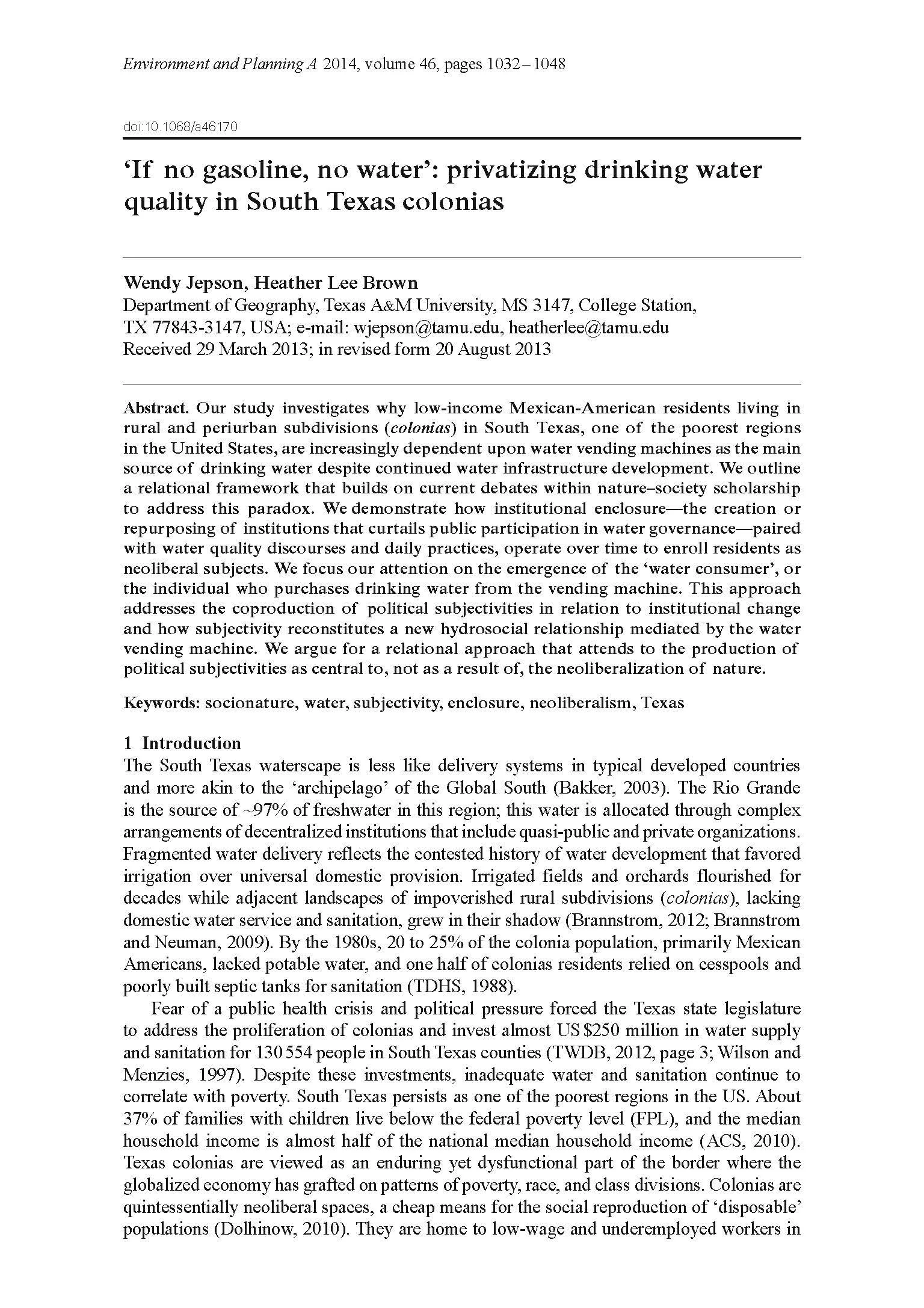Our study investigates why low-income Mexican-American residents living in rural and periurban subdivisions (colonias) in South Texas, one of the poorest regions in the United States, are increasingly dependent upon water vending machines as the main source of drinking water despite continued water infrastructure development. We outline a relational framework that builds on current debates within nature–society scholarship to address this paradox. We demonstrate how institutional enclosure—the creation or repurposing of institutions that curtails public participation in water governance—paired with water quality discourses and daily practices, operate over time to enroll residents as neoliberal subjects. We focus our attention on the emergence of the ‘water consumer’, or the individual who purchases drinking water from the vending machine. This approach addresses the coproduction of political subjectivities in relation to institutional change and how subjectivity reconstitutes a new hydrosocial relationship mediated by the water vending machine. We argue for a relational approach that attends to the production of political subjectivities as central to, not as a result of, the neoliberalization of nature.
Read MoreThis paper develops a household water security measurement for low-income peri-urban and rural communities (‘‘colonias’’) on the US–Mexico border. The complexity of a ‘‘no-win’’ waterscape – where water service exists but is relatively expensive and water quality is still precarious – precludes a meaningful assessment and analysis because there are no existing measurement tools to capture water insecurity at the household level. Informed by critical environmental epistemology, the paper incorporates perspectives from colonias residents through qualitative research and survey development. The study advances previous work on water security by developing a cumulative scale for each characteristic of household water security then clusters households into water security classes using a non-parametric statistical procedure. The analysis identified four water security classes: (1) Water Secure; (2) Marginally Water Secure; (3) Marginally Water Insecure; (4) Water Insecure. While all households in the survey are connected to water service, only 45% are broadly ‘‘water secure’’ while 55% are ‘‘water insecure.’’ Statistical analysis confirmed the robustness of the scaling and clustering procedure, thus, providing evidence to describe household water insecurity in ‘‘no-win’’ waterscapes.
Read More

